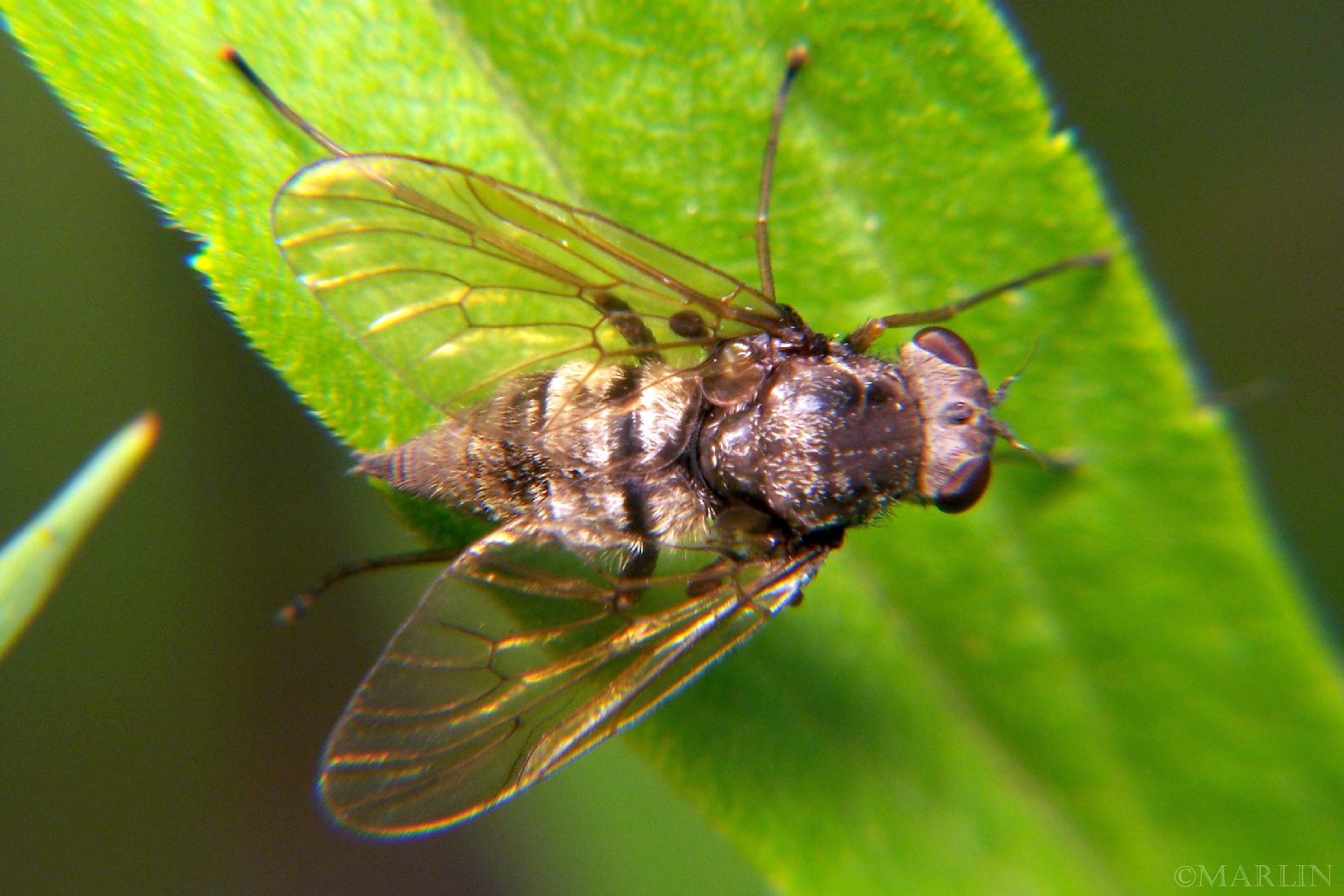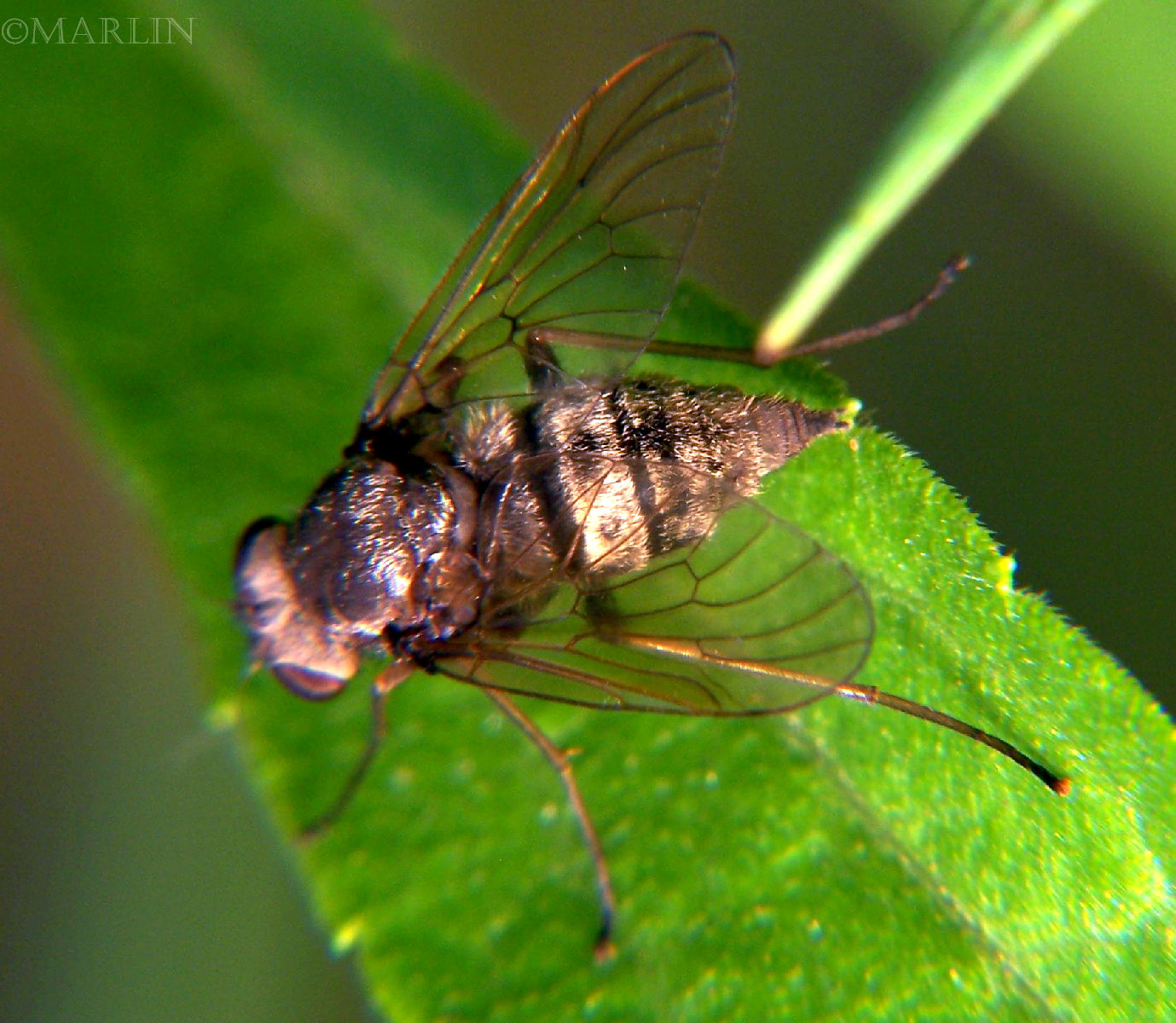Snipe Fly – Chrysopilus Species
Live adult flies photographed in the wild at Winfield, Illinois. Size: 10mm
Snipe flies are known to be important pollinators of a wide range of flowering plants, such as members of the carrot family, yarrow, and wild carrot (Daucus carota), as well as members of the daisy family.
Snipe flies are also known to visit flowers in the genus Arum (Araceae family), which are characterized by their unusual and distinctive inflorescences. The snipe flies are attracted to the foul odor produced by the flowers, which mimic the smell of carrion, and they may play a role in pollinating these plants.
Flies in Rhagionidae have slender, tapered often pubescent bodies and stilt-like legs.
The mouthparts are adapted for piercing and some species are haematophagous (blood-sucking) as adults, and attack humans and other large mammals, while others are predatory on other insects.
References
- Kerr, Peter H. 2010. Zootaxa, Phylogeny and classification of Rhagionidae, with implications… Zootaxa
Flies Main | Flies Index
Tachinidae | Bee Flies | Robber Flies


